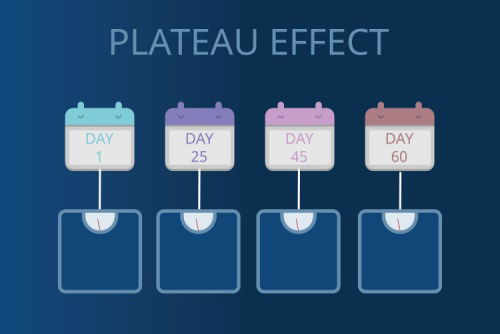Hope for Avoiding Weight-Loss Plateaus

One of the most discouraging obstacles in weight loss is the metabolic plateau. This occurs when, despite cutting calories, the body adapts by slowing its metabolism. This natural response, designed to conserve energy during periods of perceived starvation, can often undermine progress for individuals attempting to shed excess weight.
A recent Danish study, led by Kim Ravnskjaer and published in Cell Metabolism, revolved around a gene known as plasmalemma vesicle-associated protein (PLVAP or PV-1) that normally targets liver cells to switch energy sources during metabolism. When calorie intake decreases, the liver normally shifts from burning carbohydrates to oxidizing fat to preserve energy reserves to prevent starvation.
This discovery is significant because it introduces the possibility of sustainably preventing metabolic slowdowns that lead to plateaus. By manipulating the PV-1 gene, researchers were able to maintain steady carbohydrate utilization while preventing fatty acid storage by redirecting fat into muscle, and without any adverse effects to the mice being studied.
NOTE: The University of Southern Denmark’s PLVAP study on metabolism was initially published in the journal Cell Metabolism. The team of research scientists included Daniel Hansen, Jasmin Jensen, Christian Andersen, Peter Jakobsgaard, Jesper Havelund, Line Lauritsen, Samuel Mandacaru, Majken Siersbæk, Oliver Shackleton, Jonathan Brewer, Blagoy Blagoev, Nils Færgeman, and Kim Ravnskjær (all from SDU). Collaborators from Japan, the USA, and Finland. Danish scientists suggest that targeting the PV-1 gene could be key to overcoming common barriers by offering new hope for those with significant weight-loss goals.
How Cells Trigger Metabolic Changes
What makes this research particularly exciting is its potential for real-world applications. Scientists now better understand how the liver regulates fat and carbohydrate metabolism, opening a door to new pharmaceutical approaches. Medications that target the PV-1 gene could help individuals maintain an elevated metabolic rate during calorie restriction, providing a much-needed solution for those who struggle with weight-loss plateaus after reducing their food intake.
Compounded medications, which mimic the body’s natural gut hormone, are already revolutionizing weight loss treatments by curbing appetite, stabilizing blood sugar levels, and increasing satiety. The Danish study suggests that targeting PV-1 in combination with receptor agonists could support enhanced liver metabolism, enabling improved carbohydrate processing for sustained loss of unintended weight gain.
For individuals on a weight-loss journey or those managing metabolic health, this research offers new hope. The breakthrough also highlights the deeper complexity of our bodies' adaptive systems. While frustrating, normal metabolic slowdowns are a survival mechanism designed to protect us during times of food scarcity. By leveraging insights from this study, scientist may develop methods that work with the body's natural processes rather than against them.
Kickstart Your Journey for Weight Control
The Danish study regarding the manipulation of the PLVAP gene has uncovered a previous unknown role beyond its traditional endothelial cell activity. By optimizing liver function to tackle the molecular drivers of weight gain and the normal retention of unwanted pounds, it could make it much easier to overcome frustrating weight-loss plateaus and achieve one’s long-term health goals without the need for following a highly restrictive diet. Plus, the discovery provides new directions for potential therapeutic applications.
With over 35 years of experience in personalizing science-backed weight loss programs, Metabolic Research Center now offers groundbreaking prescription weight loss medications as the latest approach to tacking unintended weight gain for those who qualify. Whether you qualify for prescriptive receptor agonists or choose a more holistic science-based approach, MRC combines the latest innovations to ensure your body has what it needs to succeed. Although not available yet, protocols for flipping the PV-1 gene switch are in the works.
Alongside weight loss, this innovative approach holds potential for improving insulin sensitivity and managing chronic metabolic conditions like type 2 diabetes, obesity, and fatty liver disease. Visit us at the medical weight loss clinic Springfield to see how our experienced team can help you reach your goals. All it takes is a quick email or phone call to learn more about our personalized weight loss programs. Don’t’ forget to schedule a free consultation as your first step toward wellness.
By submitting this form, you agree to receive marketing text messages from us at the number provided, including messages sent by autodialer. Consent is not a condition of any purchase. Message and data rates may apply. Message frequency varies. Reply HELP for help or STOP to cancel. View our Privacy Policy and Terms of Service.

